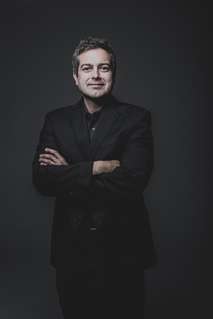|
Back
The Limits of Pure Awe New York
Weill Concert Hall, Carnegie Hall
02/26/2019 -
Jason Eckardt: Echoes’ White Veil
Claude Debussy: Images, Book II
Iannis Xenakis: Evryali
Franz Liszt: Selections from Etudes d’exécution transcendante: 10. Allegro agitato molto; 5. Feux follets; 11. Harmonies du soir; 8. Wilde Jagd
Olivier Messiaen: Selections from Vingt Regards sur l’Enfant-Jésus: 13. Noël; 14. Regard des Anges; 15. Le baiser de l’Enfant-Jésus; 10. Regard de l’Esprit de joie
Jason Hardink (Pianist)

J. Hardink (© Duston Todd)
“The notes I handle no better than many pianists. But the pauses between the notes...ah, that’s where the art lies.”
Pianist Artur Schnabel (1882-1951)
Jason Hardink obviously knew the art of the pregnant pause, from his very first piece last night. But the notes? Weill Hall’s audience never had a chance to find out. From an opening jazz riff that would have made Art Tatum resemble a mitten-wearing walrus, to Liszt etudes that transcended the keys, to three sections from a Messiaen classic that zipped through the whole New Testament, Mr. Hardink played the most consistently fast and furious music I’ve heard in a long time.
Or tried to hear. He was astounding, yes. This was dazzlement on a new scale (albeit the Steinway scales from bottommost to the apogee). He ran, no, he crazed up and down the keyboard from start to finish. Most improbable of all, the unassuming young Utah-based pianist did it without a drop of sweat, without a hair out of place. No score pages were turned (he played the most agonizing work from memory), no fingers were mis-crossed (in a Liszt etude his left hand leaped like an Olympic jumper), and by the end, we were more breathless than he was.
Mr. Hardink’s initial Carnegie Hall performance was in the “Key Pianists” series, which offer, says the official note, to focus on repertoire of “particular significance to the artists.” That was evident. Mr. Hardink was fearless indeed. No Mozart sonatas, no Chopin, not even a Scriabin to break the daredevil atmosphere.
Take that first work, Jason Eckardt’s Echoes’ White Veil. This began with the jazzy riffs but from there went into a dark cavern of illusionary slowness. This itself tumbled into long pauses (thank you, Mr. Schnabel), dark deep resonances, nerve-racking percussive work at the bottom and top of the scale.

J. Eckardt(© Philippe Gontier)
Previously I had heard Taka Kigawa perform this (Mr. Kigawa has similarly challenging programs), and listened to its apparent anarchy before reading the composer’s inspiration, by poet W.S. Merwin. “Everything we hear is an echo,” wrote Mr. Merwin, as he continued writing about both aural and temporal echoes. “How did we sound to the past? And there are sounds that rush away from us: echoes of future words.”
And that was it. That was Jason Eckardt (who I prefer to call Meister Eckhardt, the Medieval mystic), creating those resonances on the piano which resounded on themselves and the future. And those who read the Merwin screed understood it exactly.
But how did one understand Mr.Hardink’s–once again–faultless playing of Iannis Xenakis’ Evryali? A few weeks ago, I read Milos Kundera’s piece on Xenakis and copied out his non-musical wisdom, that Xenakis’ “noises that are beyond notes and scales signaling a new period in the history of music...that for the first time, someone had dared to tell European music that it is possible to abandon it.”
That was a negative description. Listening to it, one realized it didn’t survive on Merwin’s words about echoes and silences. And even trying to imagine staves of music leaping over each other, it made no sense. Except the sense of wonder.
The final pieces were middle sections from Messiaen’s massive 20-sectioned work on the Infant Jesus. These have been played in their entirety several times in New York, each time, the two-hours-plus becomes more and more entrancing.
As much for Messiaen’s descriptions as the music. One wants more and more the variegated, always dancing, always avian-inspired, always Indian-shadwed, always sensuous moments. Hearing only four movements is something of a cheat.
Still, again with no score, Mr. Hardink essayed the bells, the percussion of the angels (not Raphael’s angels, but Chagall’s crazy angels), onto the baby Jesus into the garden embracing us all. Mr. Hardink came totally into his own for the final “Spirit of Joy”. This was the last work on the program, and the piano rang out as loudly, as exuberantly as in the first Eckardt work. “God is happy,” wrote Messiaen, and obviously Mr. Hardink is exceedingly happy playing this music.
Before this, he had played Debussy’s second book of Images. We had no reason to take the images literally (compare Debussy’s faint cloches with Messiaen’s brazen Christmas bells), so one could only wonder at Mr. Hardink’s legerdemain.
It was put to use again in three of Liszt’s Transcendental Etudes. And at that point, I must confess that such finger work, such an exhibition of whirling miracles became oppressive. He made no mistakes, he was confident, he took an Allegro agitato molto to the furthest degree. So what was wrong?
Later last night, I heard Claudio Arrau play the same movement. The tempo was the same, the urgency similar. But Mr. Arrau rolled his key. Instead of a tsunami of notes, he created a tidal wave which increased and receded. One felt not in the stratosphere of great piano-playing so much as a stratospheric genius who allowed us to hear his music from the earth.
For the single partly quiet work, Harmonies du Soir, Mr. Hardink allowed himself to drift, to pursue poetry, to allow us to momentarily relax.
Relaxation, though, was not what Mr. Hardink wished. He would not be so crass–as are a few pianists on a bad day–to try and impress us. From the first five notes of Mr. Eckardt’s piece, we were impressed enough. Yet the final impression this writer had was not so much musical revelations as an unfettered awe.
Harry Rolnick
|